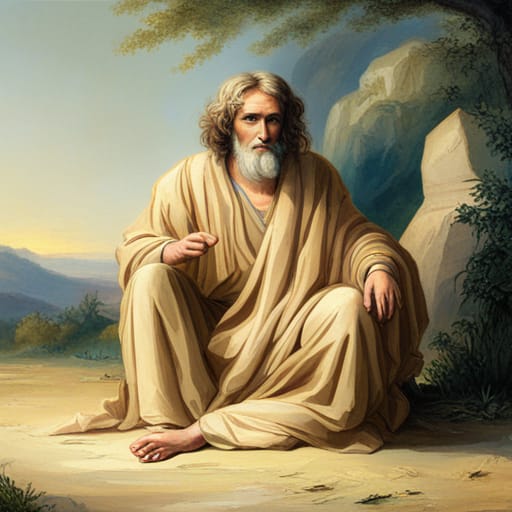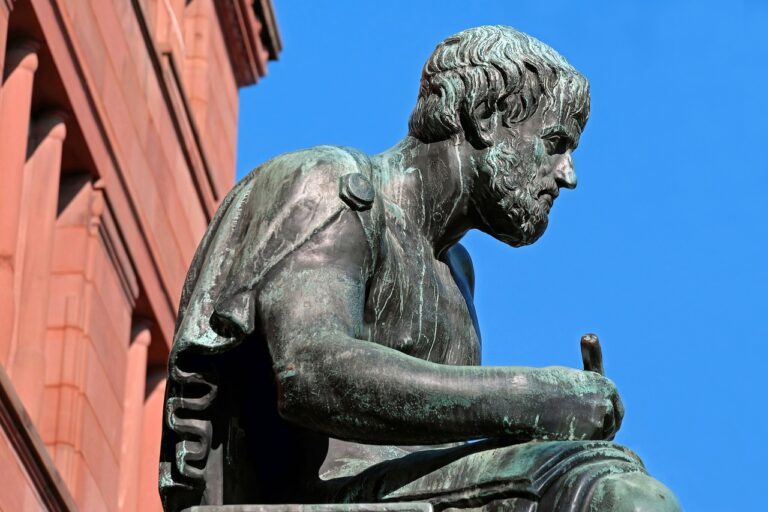
Philosophers, those brilliant minds that have shaped our understanding of the world, are often associated with their profound ideas and deep thoughts. But behind their intellectual prowess lies a world of fascinating quirks, peculiar habits, and odd rituals that add a touch of eccentricity to their brilliance.
🙃Intro
In this article, we’ll delve into the captivating realm of philosophers’ peculiarities, offering a glimpse into the charmingly unusual lives of these great thinkers.
Immanuel Kant’s Routine
Our journey into the world of peculiar habits begins with the esteemed philosopher Immanuel Kant. Legend has it that Kant followed an incredibly strict routine, adhering to his daily schedule with almost robotic precision.
He would take his daily walk at the same time, never deviating by even a minute, earning him the nickname “the clockwork man of Königsberg.” Whether rain or shine, Kant remained committed to his disciplined lifestyle, inspiring us to find our own harmonious rhythms.
Nietzsche’s Dancing
While Nietzsche is known for his profound and controversial ideas, he also had a rather curious habit—dancing like a man possessed. He would often dance wildly and passionately, even in public spaces. Nietzsche believed that dancing allowed him to express his deepest emotions and tap into his creative energies.
So, next time you feel the urge to break into a spontaneous dance, remember that even the most serious philosophers found joy in letting loose.
Søren Kierkegaard’s Eccentricity
If you think philosophers are always clad in somber attire, think again. Søren Kierkegaard, the Danish existentialist philosopher, had a penchant for donning extravagant and outlandish outfits. He would dress in flamboyant colors and eccentric hats, deliberately defying the societal norms of his time.
Kierkegaard believed that his attire reflected his inner passion and individuality, proving that philosophy and fashion can indeed coexist in delightful harmony.
René Descartes’ Companion
Descartes, the father of modern philosophy, had an unconventional companion that accompanied him on his intellectual journeys—a mechanical automaton in the shape of a life-sized doll. Descartes believed that interacting with this doll stimulated his creativity and allowed him to think more deeply.
Whether it was the doll’s presence or simply Descartes’ eccentricity, we can’t help but be charmed by the image of a great philosopher conversing with a wooden companion.
de Beauvoir’s Chain-Smoking
Simone de Beauvoir, the influential feminist philosopher, had a habit that might surprise some—she was an ardent chain smoker. It is said that she rarely went anywhere without a cigarette in hand, often using smoking as a way to fuel her introspection and philosophical musings.
While we don’t advocate smoking, Beauvoir’s unapologetic embrace of her habit reminds us that peculiar rituals can sometimes serve as conduits to creative thinking.
Conclusion
The quirks, oddities, and peculiar habits of philosophers add a colorful layer to their already fascinating lives. From Kant’s unwavering adherence to his schedule to Kierkegaard’s flamboyant fashion sense, these anecdotes remind us that even the most profound thinkers were not immune to idiosyncrasies.
By embracing their quirks, philosophers challenge our perceptions of what it means to be brilliant, inspiring us to celebrate our own eccentricities. So, let us raise a toast to these great minds who remind us that in the realm of philosophy, a touch of quirkiness often accompanies genius, making the pursuit of wisdom all the more delightful and intriguing.



